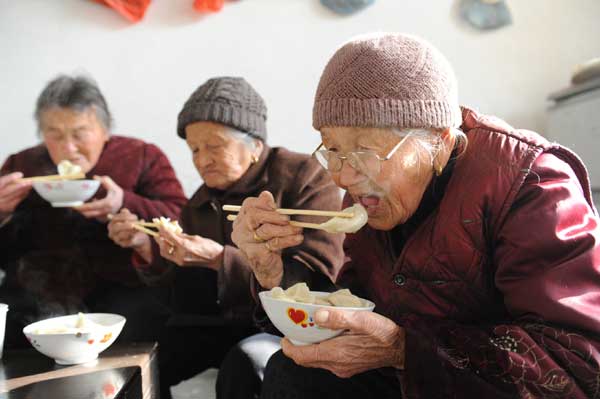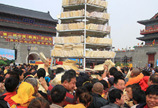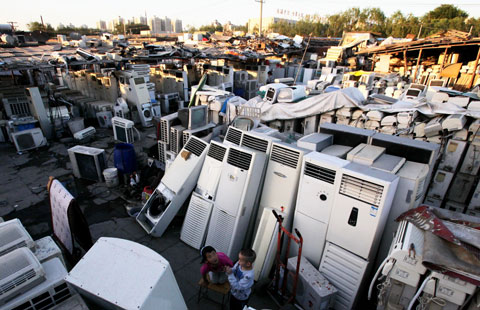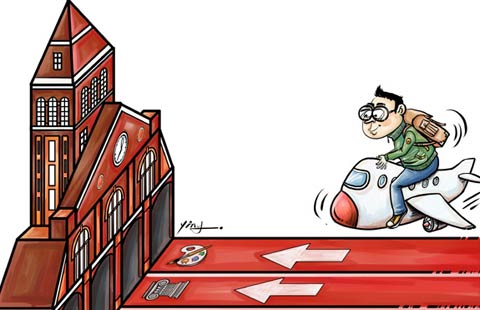Elderly couples face difficult home truths
By Wu Yiyao (China Daily) Updated: 2012-04-11 07:36"My parents don't feel the pressure of taking care of the elderly because their siblings are sharing the responsibility of looking after my grandparents. But my husband and I have to support four elderly people, ourselves, and our son - that's seven people in total," said Chen Yanjun, a 31-year-old accountant from Shanghai.
Since 1999, China has witnessed a growing number of elderly people. The country has 176 million people aged 60 or older, roughly 13.3 percent of the population. The Ministry of Civil Affairs has predicted that the number will rise to 243 million in 2020, accounting for 18 percent of the population.
China has more than 40,000 care homes for the elderly, with 3.15 million placements for senior citizens by the end of 2010, those resources are not enough to cater for the huge demand, according to the Plan for the Social Service System for the Aged (2011-2015), released by the general office of the State Council.
The authorities also provide varying levels of financial support for senior citizens, based on their location. But some elderly people have complained that there is a wide disparity between what they are given and what they need.
"We receive stipends of around 400 yuan each month. It's a small amount, and it's better than no stipend at all. However, we need to seek financial support from our kids because our pensions are simply not enough," said Liu Yulin, a 72-year-old Shanghai resident.
In China, many senior citizens have limited access to pensions and social security, but most own property, providing a potentially huge market for reverse mortgages, according to Meng Xiaosu, a visiting professor in enterprise management at Peking University.
In a pamphlet on reverse mortgages, written by Meng and Chai Xiaowu, a professor at Zhejiang University who advocates homes-for-pensions, the authors list a number of risks that homes-for-pensions financial services may encounter.
Like other financial services, reverse mortgages are subject to fluctuating interest rates and property values, deflation and inflation. Financial institutions and borrowers are both likely to shoulder a considerable loss if the fluctuations are too big.
The risk of moral hazard, including intentional default, must also be taken into consideration, according to Meng and Chai. The expropriation of land and the demolition of housing, leading to relocation of the residents, simply add to those risks.
However, the greatest difficulty comes from the pressure of the Chinese tradition that the homes of the elderly should be inherited by the children, who will take care of their parents in return.
"Children of the elderly persuade their parents not to consider reverse mortgages, because they want to inherit the property," said Zhang Wan, a wealth manager at a branch of China Citic Bank in Shanghai.
More than 40 elderly people have consulted Zhang about the reverse mortgage service, but, as of March 30, no agreements had been signed.
"In the end, the elderly people tell me that their children disagree with putting the property on a reverse mortgage. One old couple said they had no offspring, but their niece would like to inherit the house and had promised to take care of them," said Zhang.
Despite her complaints about the pressures of taking care of her parents and parents-in-law, Chen, the Shanghai accountant, said she would be unhappy if they considered a reverse mortgage. "If they joined the homes-for-pensions plan, people would talk. Neighbors and friends would say that we are not willing to take responsibility for them, and so they've been forced to resort to the banks instead, thereby seeking help from a group of strangers rather than their own kids."
 |
|
Pensioners eating dumplings at an old people's home in Liaocheng, Shandong province. Students at the city's Liaocheng University often volunteer to help the elderly by offering to chat, clean rooms and make dumplings. Dong Guangqiang / for China Daily |
- Seven villagers murdered in N China
- China steps up tobacco control efforts
- Five jailed for separatism in Xinjiang
- Letter asks for leniency in poisoning case
- Antibiotics in surface water pose 'indirect health risk'
- Tianjin airport opens up transit link to Beijing
- High levels of antibiotics in China's major rivers
- China to dig tunnel for Asian rail system
- Bering strait line to US possible, experts say
- China: Stop oil rig harassment







